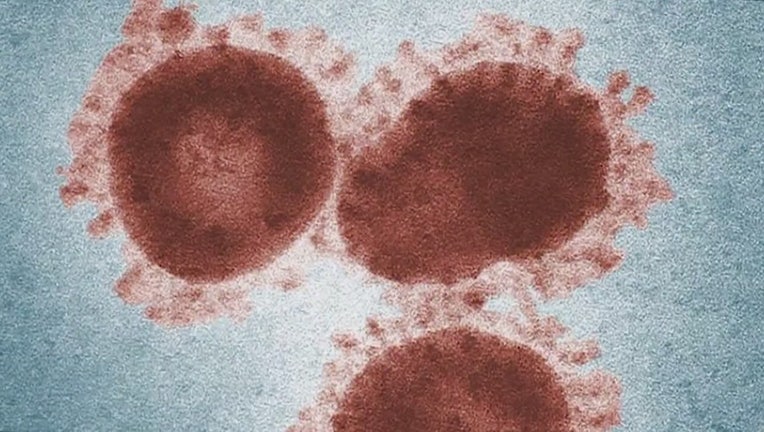Florida reports nearly 4,300 new COVID-19 cases, 56 more deaths

ORLANDO, Fla. - The Florida Department of Health on Tuesday reported 4,298 new COVID-19 and 56 more deaths.
That brings the statewide case total since the start of the coronavirus pandemic to 786,311, resulting in 16,708 deaths.
That brings the seven-day average of new cases above 3,600, similar to levels in late August when the state’s outbreak was coming down from its summertime peak. Hospitalizations have risen over recent days after remaining flat for about a month.
There were 2,333 people being treated for the disease in Florida hospitals in the late morning Tuesday, according to a state online census of hospital beds. That figure reached nearly 10,000 in late July, then declined steadily until late September when it began hovering between 2,000 and 2,200 for several weeks.
The numbers of deaths per day have continued to decline, averaging about 57 a day over the past week, down from a high of 185 in early August.
RELATED: Interactive map of COVID-19 cases across Florida
If you are having trouble seeing the map or using it (especially on a mobile device), click here to load in a new window.
Florida is now in phase three of reopening with no limitations on restaurants. They must operate at a minimum of 50 percent capacity, regardless of rules by the local government.
The original plan for Phase 3 allowed for the following changes:
- Individuals older than 65 years of age and individuals with a serious underlying medical condition can resume public interactions but should practice social distancing.
- Non-vulnerable populations should consider minimizing time spent in crowded environments.
- Non-essential travel may continue.
- Employees should resume unrestricted staffing of worksites and implement the final phasing in of employees returning to work.
- Employees should resume non-essential travel and adhere to CDC guidelines regarding isolation following travel.
- Local government meetings should return to in-person quorum and public participation for local government bodies.
- Bars, pubs, and nightclubs that derive more than 50 percent of sales from alcohol should operate at full capacity with limited social distancing protocols. Businesses should maintain adequate sanitation practices.
- Restaurants and food service establishments may operate at full capacity with limited social distancing protocols. Businesses should maintain adequate sanitation practices.
- Gyms and fitness centers should open to full capacity but should maintain adequate sanitation practices among employees and patrons during all hours of operation.
- State parks should be fully opened, including overnight accommodations. Beaches should remain fully open.
- Large venues such as movie theaters, concert halls, and bowling alleys should re-open fully with limited social distancing protocols.
- Large spectator sporting events should consider reducing capacity with limited social distancing protocols.
- Theme parks may return to normal operations with limited social distancing protocols.
- Salons, barbershops and nail salons, should operate under full capacity but should consider removing all unnecessary, frequent-touch items such as magazines and newspapers, and maintain sanitation standards.
- Retail businesses should operate at full capacity.
RELATED: Study suggests mouthwash could fight COVID-19
Coronavirus can spread from person to person through small droplets from the nose or mouth, including when an individual coughs or sneezes. These droplets can land on objects and surfaces. Others can then contract the virus by touching these objects or surfaces, then their eyes, nose or mouth.
As stated before, symptoms of the coronavirus include fever, cough and shortness of breath. They may show in as few as two days or as many as 14 days following exposure, the Florida Department of Health says. Most people recover from COVID-19 without special treatment, but the elderly and those with underlying medical problems are more likely to develop serious illness.
If you display coronavirus symptoms, you should contact a local health organization and make them aware of your condition prior to arrival while also following specific instructions or guidelines they may have.
RELATED: Pelosi 'remains optimistic' about COVID-19 relief package before Election Day
If you are experiencing a medical emergency, call 911 and let them know if you have been infected or believe that you may be. If you are infected, a medical professional or another authority will likely advise that you remain isolated while sick. This includes staying at home and not going into public places or large events.
Please visit the Department’s dedicated COVID-19 webpage for information and guidance regarding COVID-19 in Florida.
For any other questions related to COVID-19 in Florida, please contact the Department’s dedicated COVID-19 Call Center by calling 1-(866) 779-6121. The Call Center is available 24 hours a day. Inquiries may also be emailed to COVID-19@flhealth.gov.
CLICK HERE FOR COMPLETE CORONAVIRUS COVERAGE
Tune in to FOX 35 Orlando for the latest coronavirus news.

